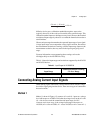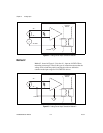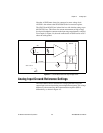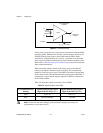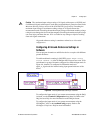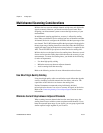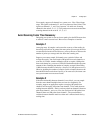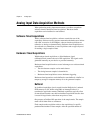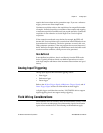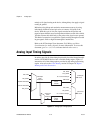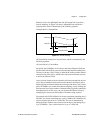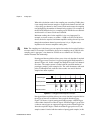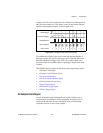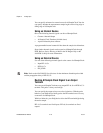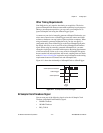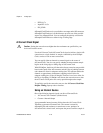
Chapter 4 Analog Input
© National Instruments Corporation 4-11 NI 6238/6239 User Manual
samples has been written out, the generation stops. If you use a reference
trigger, you must use finite sample mode.
Continuous acquisition refers to the acquisition of an unspecified number
of samples. Instead of acquiring a set number of data samples and stopping,
a continuous acquisition continues until you stop the operation. Continuous
acquisition is also referred to as double-buffered or circular-buffered
acquisition.
If data cannot be transferred across the bus fast enough, the FIFO will
become full. New acquisitions will overwrite data in the FIFO before it can
be transferred to host memory. The device generates an error in this case.
With continuous operations, if the user program does not read data out of
the PC buffer fast enough to keep up with the data transfer, the buffer could
reach an overflow condition, causing an error to be generated.
Non-Buffered
In non-buffered acquisitions, data is read directly from the FIFO on the
device. Typically, hardware-timed, non-buffered operations are used to
read single samples with known time increments between them and good
latency.
Analog Input Triggering
Analog input supports three different triggering actions:
• Start trigger
• Reference trigger
• Pause trigger
Refer to the AI Start Trigger Signal, AI Reference Trigger Signal, and AI
Pause Trigger Signal sections for information on these triggers.
A digital trigger can initiate these actions. NI 6238/6239 devices support
digital triggering, but do not support analog triggering.
Field Wiring Considerations
Environmental noise can seriously affect the measurement accuracy of the
device if you do not take proper care when running signal wires between
signal sources and the device. The following recommendations apply



